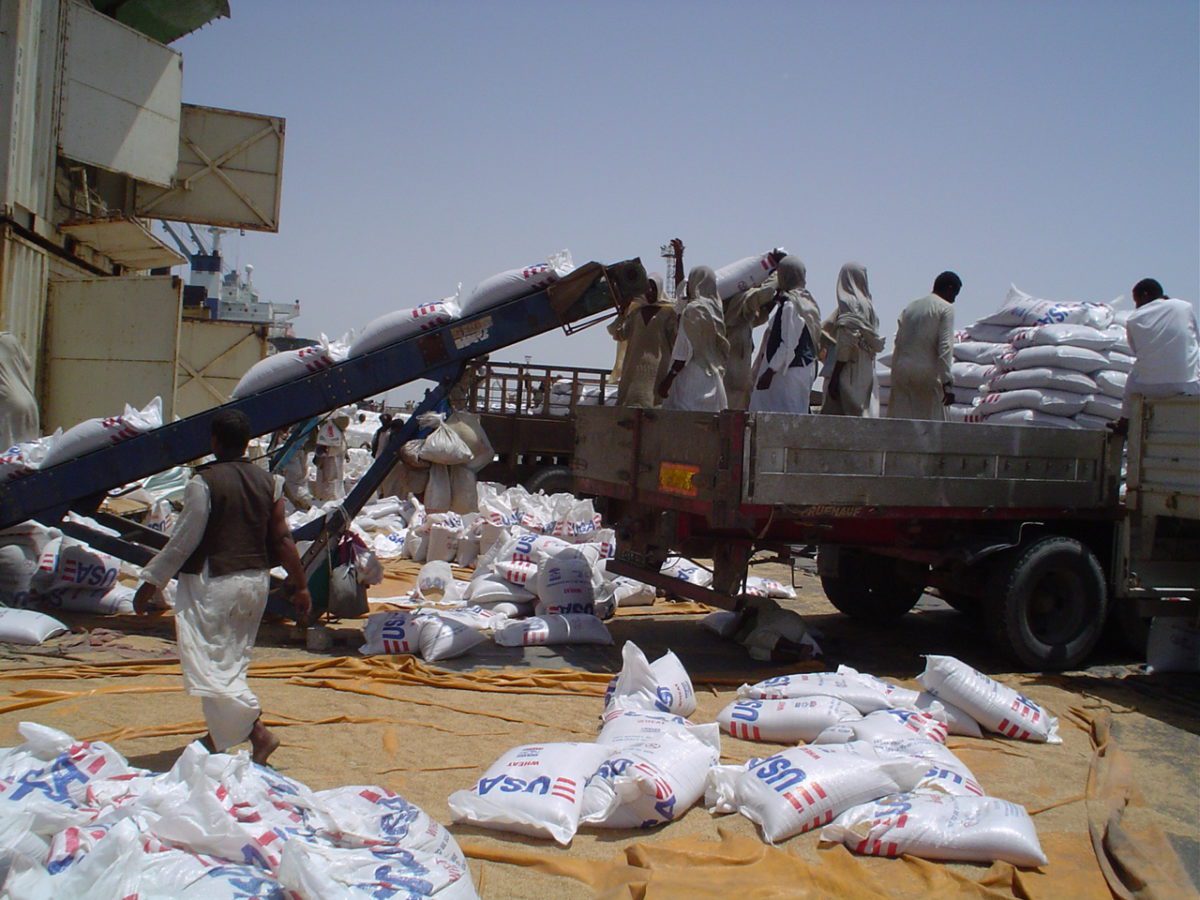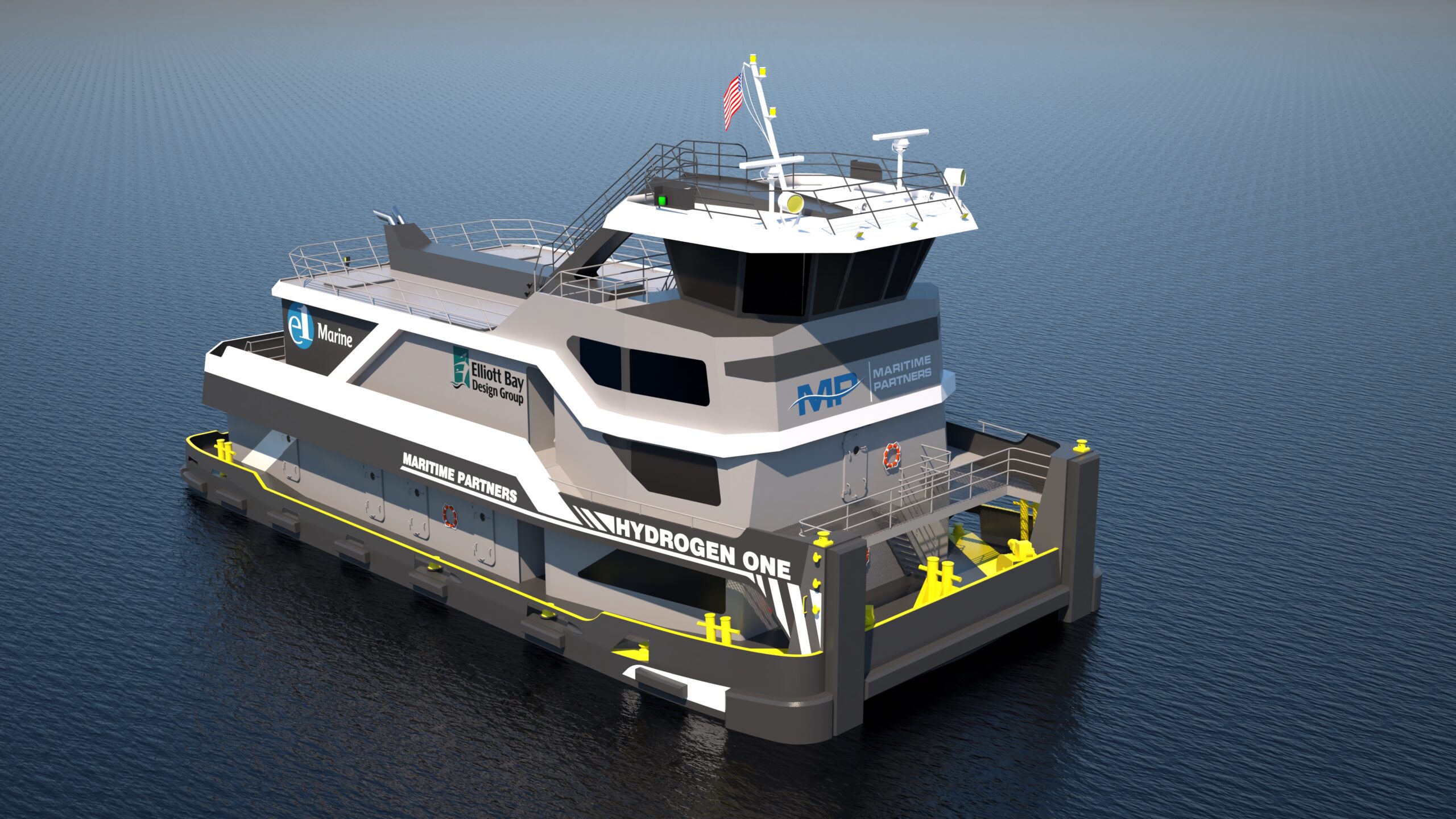Offloading USAID wheat at Port Sudan. Photo: Wikimedia Commons
 By Patricia Zengerle
By Patricia Zengerle
WASHINGTON, June 3 (Reuters) – Two U.S. lawmakers introduced legislation on Tuesday to end U.S. restrictions on international food aid programs, which they said would free up hundreds of millions of dollars per year and get aid to some 9 million more hungry people around the world.
U.S. Senators Bob Corker of Tennessee, the top Republican on the Senate Foreign Relations Committee, and Democrat Chris Coons of Delaware, chairman of the Africa subcommittee, introduced the Food for Peace Reform Act of 2014.
President Barack Obama’s administration has been pushing to overhaul the $1.4 billion U.S. food aid program for years. But his efforts have faced stiff resistance, especially from U.S. shipping companies that say they would cost jobs.
The program is restricted by laws requiring that most food be produced in the United States rather than purchased locally, which means it can cost more and take months to reach needy people, often arriving too late to be of much help in case of famine or disaster.
Half must also be transported on U.S. vessels, which can take months and double the cost. That restriction was loosened two years ago. Before 2012, three-quarters of all food aid had to be sent on U.S. ships.
“At a time when our budget is strained and U.S. resources are limited, Congress needs to find ways to be more efficient and effective with every dollar,” Corker said in a statement.
Coons said the reforms in the legislation had strong bipartisan support. They are generally favored by international aid organizations.
The bill would allow both U.S. and locally or regionally procured commodities, vouchers or cash transfers to be used for aid, depending on which is the most cost-effective option.
Backers of the measure said the effect on U.S. agriculture would be small, noting that U.S. food aid contributed only 0.86 percent of total U.S. agricultural exports from 2002-2011 and just 1.41 percent of net farm income.
The bill also would allow the U.S. Agency for International Development to ship food on whatever vessels were readily available. Studies have shown that the U.S. cargo preference requirement resulted in aid shipping at rates 46 percent higher than competitive market rates.
The bill also would end “monetization,” a requirement that 15 percent of all U.S.-donated food be sold first by aid organizations, producing cash that would fund development projects.
Sponsors of the legislation said eliminating monetization would save 25 cents out of every taxpayer dollar spent, and could feed 800,000 more people and free some $30 million per year.
The measure would also transfer current food aid authorities from the farm bill – a giant package governing U.S. agriculture – to the Foreign Assistance Act. (Reporting by Patricia Zengerle; Editing by Ken Wills and Jonathan Oatis)
© 2014 Thomson Reuters. All rights reserved.

 Join The Club
Join The Club











